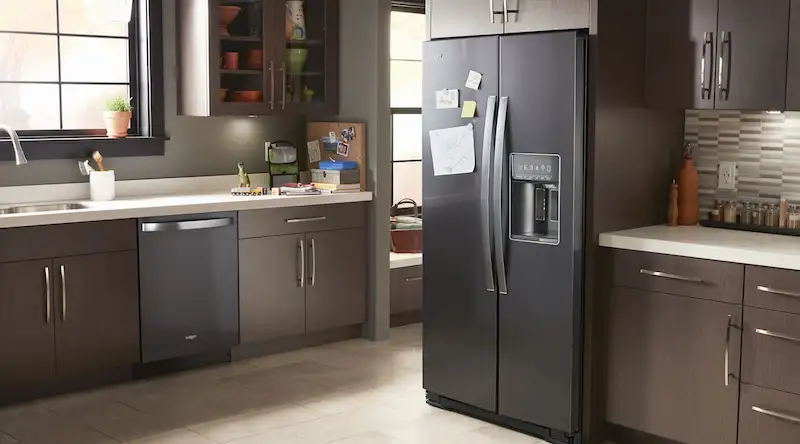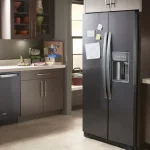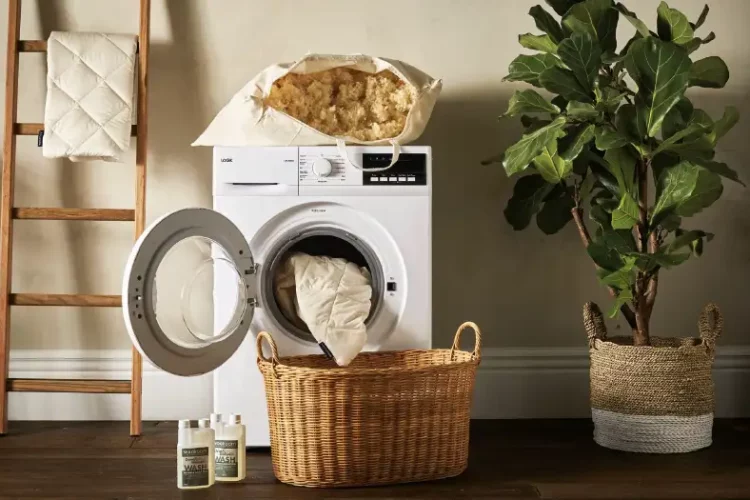
Welcome to the sound-savvy realm of Refrigerator Repair Blog, where we will investigate the common noises that refrigerators make and provide technical guidance on diagnosing and repairing these issues. This guide aims to equip you with the necessary knowledge to identify the sources of refrigerator sounds, implement effective repair solutions, and maintain a quiet and efficient appliance. As always, exercise caution when working with electrical appliances and seek professional assistance when necessary.
Technical Overview of Refrigerator Noises and Their Causes
- Identifying compressor-related sounds
- Diagnosing evaporator and condenser fan noises
- Investigating defrost system-related sounds
- Recognizing ice maker and water dispenser noises
Advanced Technical Solutions for Noisy Refrigerator Issues
- Addressing compressor noise problems
- Repairing or replacing malfunctioning evaporator and condenser fans
- Resolving defrost system-related noise issues
- Troubleshooting ice maker and water dispenser sounds
Essential Maintenance Tips for Quiet and Efficient Refrigerator Operation
- Regularly inspecting and cleaning key components
- Ensuring proper installation and leveling of the appliance
- Monitoring temperature settings and adjusting as needed
- Keeping doors and seals in good working condition
Recognizing the Need for Professional Assistance in Refrigerator Noise Repair
- Advanced diagnostics for complex noise-related issues
- Safety considerations when repairing electrical components
- Handling refrigerant-related repairs and replacements
Frequently Asked Questions (FAQs)
How can I determine the source of my refrigerator’s noise?
You can try to locate the source of the noise by unplugging the refrigerator and listening for any sounds that may continue. If the noise stops, it may be coming from the compressor or fan. If the noise persists, it may be coming from the water inlet valve or ice maker. You can also try cleaning the condenser coils to see if that reduces the noise. If you are unable to locate the source of the noise, it may be best to contact a professional for assistance.
What are common compressor-related sounds and their causes?
Some common compressor-related sounds and their causes include:
- Hissing or air leaking: caused by a leak in the air system or a faulty valve
- Knocking or banging: caused by a loose or worn out piston or connecting rod
- Whistling or squealing: caused by a worn out or misaligned belt or pulley
- Grinding or rattling: caused by a damaged or worn out bearing or motor
- Clicking or ticking: caused by a faulty pressure switch or control valve.
How do I troubleshoot evaporator and condenser fan noises?
To troubleshoot evaporator and condenser fan noises in a refrigerator, you can try cleaning the fans and their blades to remove any debris or dust that may be causing the noise. You can also check if the fans are properly mounted and not loose. If the noise persists, it may be a sign of a faulty fan motor that needs to be replaced.
What steps can I take to resolve defrost system-related sounds?
There are a few steps you can take to resolve defrost system-related sounds in a refrigerator:
- Check the defrost timer: If the defrost timer is faulty, it can cause the defrost system to malfunction and make strange noises. Check the timer and replace it if necessary.
- Inspect the defrost thermostat: The defrost thermostat is responsible for regulating the temperature in the freezer. If it’s not working properly, it can cause the defrost system to make strange noises. Check the thermostat and replace it if necessary.
- Clean the condenser coils: Dirty condenser coils can cause the refrigerator to work harder than it needs to, which can lead to strange noises. Clean the coils with a coil brush or vacuum.
- Check the evaporator fan: The evaporator fan circulates air over the evaporator coils, which can cause strange noises if it’s not working properly. Check the fan and replace it if necessary.
- Call a professional: If you’ve tried all of these steps and the noises persist, it may be time to call a professional to diagnose and repair the issue.
What maintenance tips can help ensure quiet and efficient refrigerator operation?
Here are some maintenance tips that can help ensure quiet and efficient refrigerator operation:
- Clean the condenser coils regularly to remove dust and debris that can cause the refrigerator to work harder and make more noise.
- Check the door seals for any cracks or gaps that can let cold air escape and cause the refrigerator to work harder.
- Keep the refrigerator well-stocked but not overfilled, as this can help maintain a consistent temperature and reduce the need for the compressor to work harder.
- Avoid placing hot or warm food in the refrigerator, as this can cause the compressor to work harder to cool the interior.
- Set the temperature to the manufacturer’s recommended setting and avoid adjusting it frequently, as this can cause the compressor to work harder and reduce efficiency.
Conclusion: Restoring Peace to Your Kitchen
This article guide has provided you with an in-depth understanding of diagnosing and repairing common refrigerator noises, offering actionable solutions and maintenance tips to maintain a quiet and efficient appliance. By enhancing your technical expertise, you can minimize repair costs and extend your refrigerator’s lifespan. However, it is crucial to recognize your limitations and seek professional guidance when faced with complex or potentially hazardous repairs. With the right knowledge and tools at your disposal, you can confidently maintain your refrigerator’s peak performance and restore peace to your kitchen.



